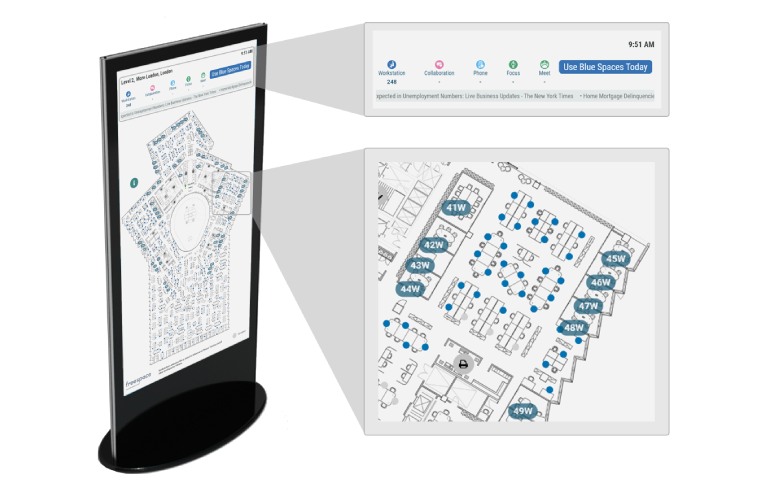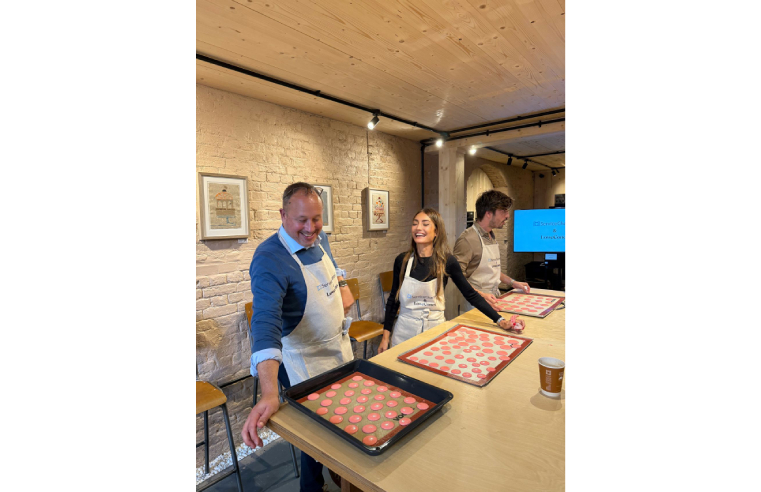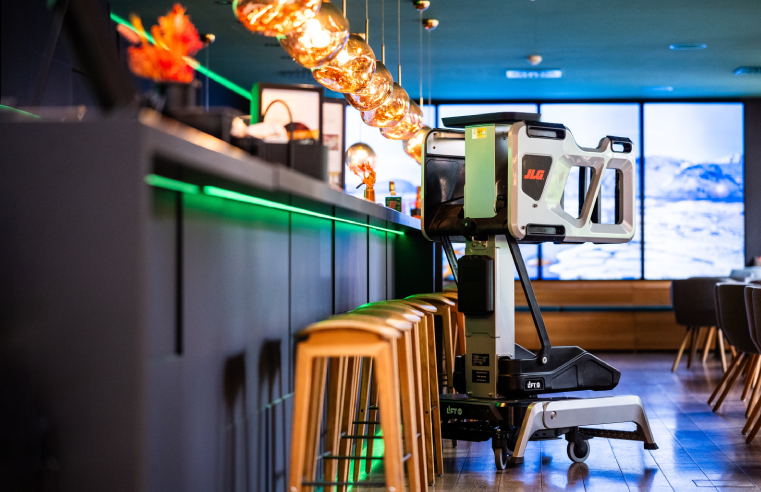Freespace, a UK-based technology company providing workplace sensors, digital signage and data intelligence, has unveiled a social distancing solution to support businesses with the phased return to work.
As offices begin to reopen over the coming weeks, new approaches will be needed to ensure employers minimise the risk of infection between colleagues. Ensuring employees adhere to the government sanctioned social distancing guidelines will be critical in achieving a safe back-to-work programme.
For most organisations, the return to work will be implemented with limited workplace redesign due to restricted resources. Honouring social distancing practices will therefore demand clear communication, particularly when it comes to wayfinding and maintaining appropriate occupancy levels.
Freespace's latest tech-led solution features a combination of sensors and digital systems designed to help identify and communicate which available spaces are safe for employees to use.
The solution is fivefold:
Designing the social distancing plan - Freespace has developed a design service that combines an AutoCAD integration with flexible algorithms to calculate the optimal occupancy floor design. This is presented on digital signage to allow organisations to communicate which desks are available for use on a particular day, based on a stipulated social distancing threshold and occupancy sensors that show live availability.
Split groups and split desking - Organisations are exploring ways to minimise cross contamination and reduce the impact on business operations. To this end, two strategies are proving popular. The ‘split group’ strategy involves separating employees into different weekly groups to support business continuity in the event that one group becomes infected. The ‘split desk’ strategy enables the alternating usage of desks between days, creating maximum usage of the space overall and more time for cleaning teams to react to the demand. Combinations of these strategies are being considered for assigned desk and agile work settings.
Wayfinding - To support the user journey, digital signage screens have been redesigned to display information that advises staff to occupy or avoid selected floors and areas. Clear navigation to the workspace ensures employees take the most efficient journey, minimising unexpected interactions with other employees. To physically identify the desk that may be used on a given day, Freespace has integrated a digital tagging system called SPOT. The colour coded SPOT tags can be used to digitally log activity at a desk and allow for easy local confirmation that a desk is safe to use.
Reassurance using sensors and smart tags - Freespace sensors capture occupancy in real-time, based purely on the presence of a person; there is no requirement for intervention from employees, nor does the platform require or store personal data. A simple app has been built that can be used in conjunction with the SPOT tags to reassure employees about the history of desks or other work locations, including usage and cleaning, before they use the space.
Exception analytics - The live backoffice analytics dashboard has been modified to show any social distancing exceptions that are taking place on the floor, such as someone using a space which has been blocked or two people sitting at adjacent spaces, allowing a workplace manager to monitor risk and take discreet action or increase advisory to targeted groups. The number of exceptions and their duration can be tracked by user communities across floors, buildings and countries to help with focused or ‘nudge’ based communications.
Raj Krishnamurthy, CEO, Freespace, said: “Forward-thinking businesses are leveraging technology to support everything from social distancing and occupancy-based cleaning to compliance and planning. Tech-based solutions that offer real-time occupancy and daily performance analytics will help employers design and deliver a safe working environment. The insight gleaned from sensor data, coupled with positive behavioural reinforcement via digital signage and visual desk cues, will enable organisations to learn and adapt in line with the challenges ahead.





































